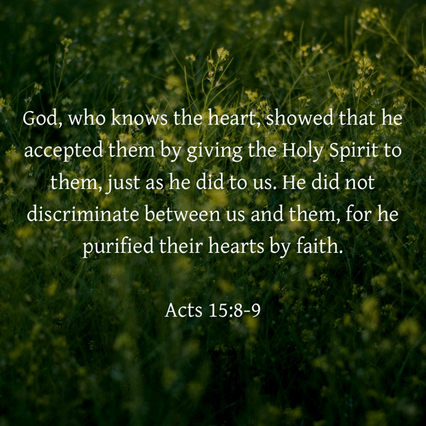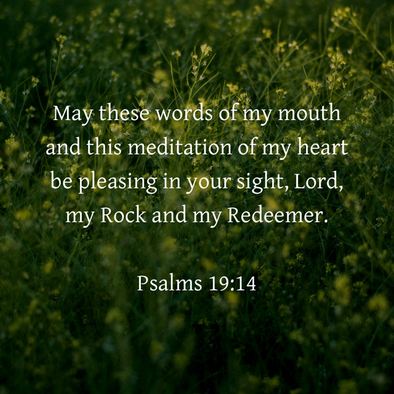|
Good morning!
We're so glad you decided to join us today!
Starting next week, our in person Sunday School class will be after the worship service.
Worship will start at 9:45 am. Sunday School will start at 11 am.
When we meet in person, we share our joys and concerns. Take some time to consider the past week, and any prayer requests you might have. When you are ready, use the prayer below to get started.
Loving God, Creator of dignity and all that lives. Help us be bridges. We must have your grace to endure and your wisdom to bring harmony where there is strife, transform us to peacemakers and bridgemakers. We are all God's children. Amen.
This week's lesson is on Acts 15:1-11.
Conflict management is not a new practice. One method (of many) to resolve conflict involves three steps. First, the parties in dispute are to be identified. Second, both sides must clearly understand the nature of their conflict. Third, the involved parties shared values or common ground should be recognized. When mediators address these steps, an agreement that serves the interest of all conflicting parties can be reached.
Today's scriptures involve a conflict between parties of the first century church. The Christian movement was just beginning, and believers had to work out conflicting perspectives on certain doctrines. The resolution in Acts 15 set an important precedent for the church and identity of people of God. Most of Jesus' earliest followers were Jewish, and they still participated in many of the practices of Judaism. For example, until the destruction of the Jerusalem temple in AD 70 , Jewish followers of Jesus participated in some of the temple's ceremonies. Additionally, throughout the Roman Empire, Jewish believers continued to participate in the synagogues. Jews gathered in these buildings for worship and teaching from the Scriptures. Some Gentiles had become highly regarded within their local Jewish communities, partly because of their support of synagogues. The book of Acts mentions one such individual: Cornelius, who was “God fearing.” There is no indication that these Gentiles took up the requirements of Judaism. As a result, they were not considered “fellow children of Abraham”. There were, however, some Gentiles who chose to convert fully to Judaism. Male converts were required to be circumcised – a painful, even dangerous, surgical procedure in the day of rudimentary anesthesia and no antibiotics. Some individuals were teaching that Gentiles followers of Jesus needed to be circumcised according to the Law of Moses. The reasoning for this position was to Israel that God had revealed himself, given his law and specified circumcision as the sign of his covenant. This group assumed that if God himself was known to the nations, then the nations should be circumcised according to the Law of Moses. During the time between the Old and New Testament, circumcision had become a boundary maker for Jewish identity. The events of Act 15:4-29 depict a meeting sometimes called the “Jerusalem Council”. This meeting took place in approximately AD 51. This council was an early attempt to answer the vital question of how to incorporate Gentiles into the people of God. The church's future depended on how the council answered this question. The issue at hand was not if Gentiles would be admitted into the people of God but what means which Gentiles entered the community of God's people. Paul was from the tribe of Benjamin. He was educated by a notable rabbi and trained as a Pharisee. Barnabas was the first to introduce Paul to the other apostles. They were apostles and leaders in the first-century church. Paul and Barnabas along with some other believers were appointed to go up to Jerusalem to see the apostles and elders about this question. While they traveled they proclaimed the news that God had welcomed Gentiles into his people. This welcoming occurred when the Gentiles experienced a circumcision of the heart. Conversion is turning away from evil and toward God. The conversion of Gentiles demonstrated that God had kept his promise to Abraham regarding the blessing to “all people on earth.” The Pharisees stood up at the Jerusalem Council and stated that the Gentiles must be circumcised and required to keep the law of Moses. Some Pharisees (like Paul) believed in Jesus. The apostles and elders met to consider the question in private. After much discussion, Peter got up and addressed them. “Brothers, you know that some time ago God made a choice among you that the Gentiles might hear from my lips the message of the gospel and believe.” God had chosen Peter to proclaim the Gospel message to the “circumcised and the Gentiles.” It was part of the long-promised plan of God to offer redemption to all people who would believe. God, who knows the heart, showed that he accepted them by giving the Holy Spirit to them, just as he did to us. When Peter went to see Cornelius, a Gentile who feared God, Cornelius and his whole household believed and the Holy Spirit came upon all that heard the message. This pouring out of the Spirit was just as God did to Jesus' disciples at Pentecost. The presence of God's Spirit on Gentiles showed their inclusion of God. Peter clinched his argument: the Gentiles' reception of God's Spirit was the sign of their acceptance into God's people. God does not discriminate between Jews and Gentiles. Gentiles did not need to become circumcised. Instead, God cleans the hearts of all people who express faith in Christ. Faith is not merely a belief in a proposition. Rather, faith expresses trust and allegiance in Jesus as the Messiah and King. Such faith leads to a person being made right with God. Gentiles had received the Holy Spirit because of their faith in Christ. Through faith, “there is neither Jew or Gentile, slave or free, male and female, for you are all one in Christ Jesus.” Now then, why do you try to test God by putting on the necks of Gentiles a yoke that neither we nor our ancestors have been able to bear? It was a faulty assumption that God's gift of the Spirit was mistakenly poured out to the Gentiles. If Peter's peers and ancestors could not bear the requirements of the Law of Moses, why would the Gentiles be expected to do so? Peter ended with a reminder of the core of the gospel. Salvation comes only from one avenue: by the grace of our Lord Jesus. No human work, including following the Law of Moses, could save a person.
Conclusion: Seeking Resolution
People try to hide conflict by avoiding or ignoring it altogether. Maintaining a facade of peace regardless of the underlying discord can be a severe failure. Evading problems usually makes the conflict worse. The leaders of the first-century church did not dodge conflict regarding the question of Gentile circumcision. Instead, they resolved the dispute while staying faithful to the gospel. God's plan for salvation is beyond human expectations. We are saved through the grace of the Lord Jesus and not through our heritage or achievements! Prayer God of salvation, thank you for showing your mercy. Help us welcome as we have been welcomed and love as we have been loved. Show us how we can proclaim to others your plan for salvation. In the name of Jesus. Amen
Questions for Discussion
Benediction
This week's benediction is from New International Version.
Next week's lesson is on Romans 13:8-10; 1 Corinthians 13:8-13.
0 Comments
Leave a Reply. |
AuthorWe are a small, rural Presbyterian church in southwestern Pennsylvania. Archives
July 2024
Categories
All
|



 RSS Feed
RSS Feed